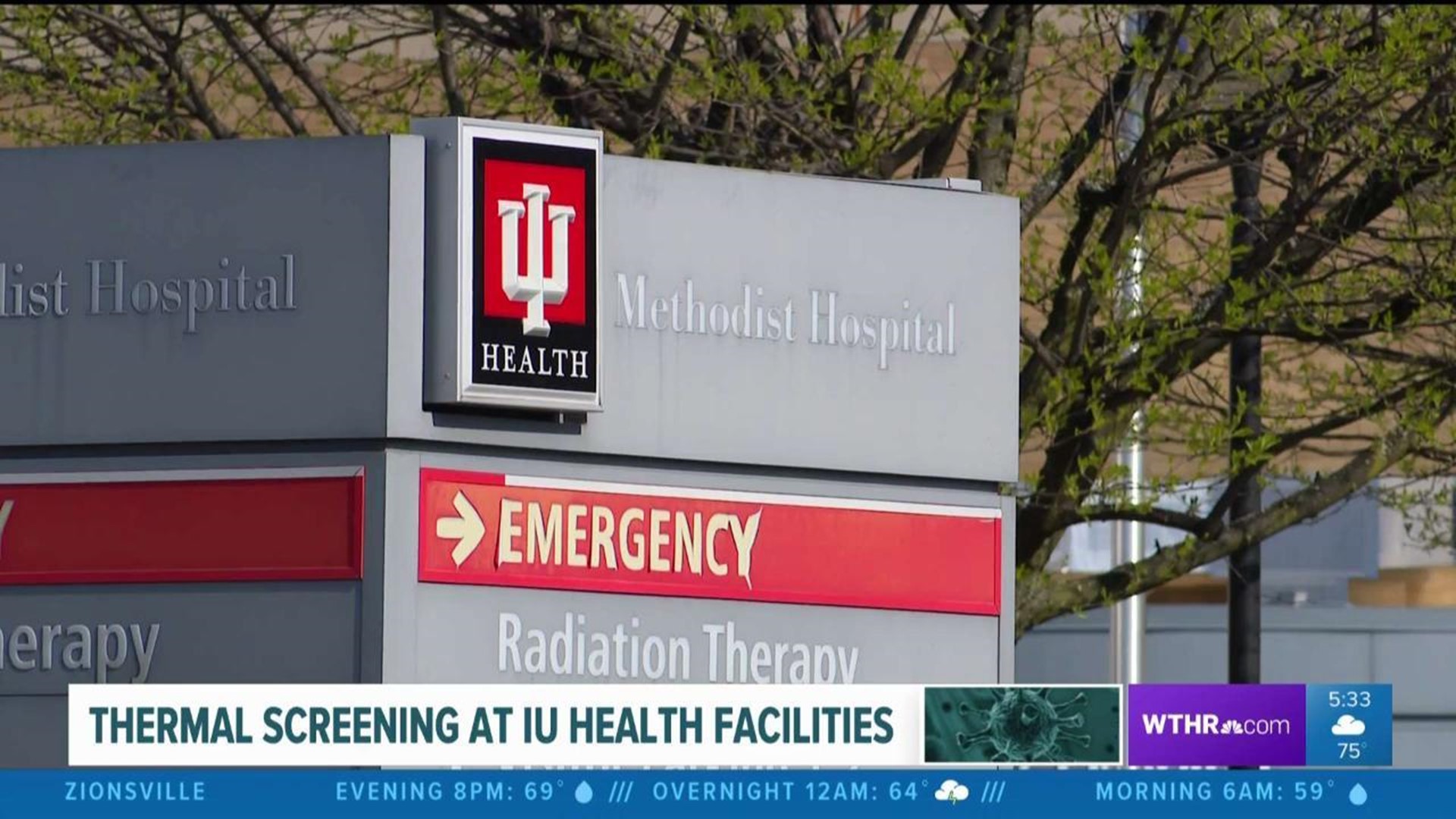INDIANAPOLIS (WTHR) — At the IU Health Simon Cancer Center, new thermal cameras and an optical system installed last week, scan your forehead for a fever as soon as you walk in the door.
"The main reason why we do this is to protect patients and health care workers in the hospital from potential infections," said IU Health Infectious Disease Specialist, Lana Dbeibo.
Intelligent Systems, a smart technology small business based in Carmel, installed the system last Thursday. IU Health considers 100.4 degrees Fahrenheit the fever threshold. The reading upon entry is based on external heat which is used to flag high internal body temperatures.
"It's utilizing facial recognition, so that it can target the human forehead. Because that's the best place to get an accurate reading. People can walk through and masks and hats, and it can still give an accurate temperature reading" according to Intelligent Systems Founder and President, Stephe Blansette.
Blansette said his system offers an efficient, non-invasive screening of 5,000 people per hour.
"We've gotten the feedback really is that people present and don't know that they have a fever" said Katie McGill at Simon Cancer Center. "It's a quick moment in time that shows a temperature reading. There isn't anything identifiable on it, and we don't save information."
At IU Health, the protocol is not to send people away, but to isolate as soon as possible, utilize protect gear like masks, and keep the person away from waiting rooms and patients considered high risk.
"You're going to see this everywhere," predicts Blansette as businesses develop strategies to safely reopen after the COVID-19 crisis. "I think it's just going to be one of those things that people start getting used to like, you're going to see this probably at Pacer games or things like that where you're going out to a sporting event, and you've got a lot of people that have to move through."
This system costs about $23,000, and IU considers it a permanent installation that will ease staffing and protect patients long term.
"It is hard to staff an entrance for 12 hours a day and have that interaction, one-on-one with every patient or guest, that comes through the door," McGill said.
Blansette founded Intelligent Systems 16 years ago. He said the technology has wider capabilities than IU Health will be utilizing.
"They can do facial recognition, .... object identification, so the camera systems can say that's a car and that's a person, that's an animal. From a security standpoint, we want to know when somebody is walking down this corridor. That's the first step. The second step is when you start to use the machine-learning aspect of some of these tools. Very quickly it allows you to do things that were never possible, " Blansette said. ... "The hard part is going to be how we accept it as a culture. We were very reluctant to embrace a lot of these technologies, whereas in China, you can't go a block without having, a video taken of yourself. I think it's going to be more of us learning to evolve with the technology versus the technology evolving because technology is going to evolve a lot faster than we do."
At IU Health, Blansette said the cameras are not connected to a network and can't be accessed remotely. The system's storage is set to continuously overwrite itself.
"It's very important for the people that purchase these machines to understand that and be able to be conscious of how they are handling that," Blansette said.
By the end of this week, Methodist and Riley Children's Hospital will have the same Intelligent System technology.
"At this point, anything that is going to provide extra safety is worth an investment for patients," Dbeibo said.

